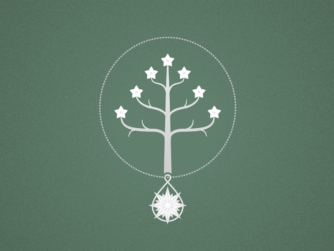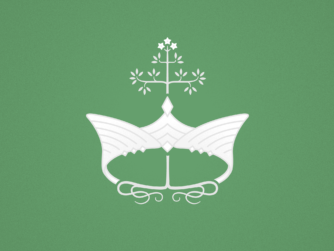This time, Alan flies solo over the battlefields of World War I and discusses both the explicit and the implied influences that the Great War had on Tolkien’s writings, while Shawn is safely away in the officers’ club in Edoras with a refreshing drink.
Listen to the episode here, on YouTube, or in the player below:
Subscribe to the podcast via:
- iTunes (for iOS users)
- Subscribe on Android
- Stitcher
- RSS Feed
Comments or questions for Barliman’s Bag?
- Visit us at Facebook or Twitter
- Comment on this blog post
- Or email theprancingponypodcast (at) gmail (dot) com. Don’t forget to replace the words in parentheses with the usual symbols!
Recommended Reading:
Carpenter, Humphrey, ed. The Letters of J.R.R. Tolkien (Mariner Books, paperback)
Carpenter, Humphrey. J.R.R. Tolkien: A Biography (Houghton Mifflin, paperback)
Garth, John. Tolkien and the Great War: The Threshold of Middle-earth (Mariner Books, hardcover)




Good day, Alan, I finally signed in, after some days from my request, and I’ve listened to the recordings at the podcast until this chapter. I’m delighted to hear you and Shawn, and enyoyed your talking, truly, I’ve learned more about the wonderful professor Tolkien’s world. It still amazes me how, while many other war veterans live a continuous nightmare, come out from their thrilling experiences from the front during the war, professor Tolkien, not only could lead the memories of the horrors lived in the trenches pouring them into his writings, but also having a touchin way of printing also many other atributes that make us more human, in a moral sense, such as kindness, love, loyalty, and a good sense of humor; something that I guess is not easy to do at all, after being in the milicia, and living the horrors of cruelty, selfishness and death. The beauty of his narrative and the accuracy on setting each element in its own place, makes me believe in a better world, despite it is a fantastic mithology, written on a foundation of knowledge and experience, what makes it, as you accurately said, one of the most beautiful written ever, and in my opinion, also the perfect one. I wish more people in my country could enjoy this wonderful books I really look forward to listening “Ainulindale”. Sorry for my not perfect English. Thanks a lot for investing the time to make The Prancing Pony Podcast, and for sharing it!
Thank you, Nadia! I saw your comment first, but I’ll make sure Alan sees it too. Thank you for your feedback; we have enjoyed making the podcast and sharing our love for Tolkien with people all over the world, and are glad to have you on the journey with us! As for your comment, I agree completely. I personally cannot imagine the horrors of war, and we hear stories every day of how people suffer under the weight of these experiences. But for Tolkien to have turned that experience into an inspiration for something of beauty, that’s given so many people so much hope, truly speaks to the optimism of the man and his belief in the power of fantasy. Thank you for sharing your thoughts with us, and please write to us anytime!
Thanks so much, Shawn, the way you comment makes really easy for me to understand professor Tolkien’s mithology.
The first book I had contact with, about 18 years ago, was “The Hobbit”, by then, I had no idea that all of this wonderful Tolkien’s world existed! I had spent some years more in contact with Latin and some other English speaking authors, like Edgar Allan Poe and so, most of them wonderful in their own way, but discovering “The Hobbit” showed me a totally different narrative, the first thing I thought as I was reading the the first two chapters, was “this is such a delightfully wide narrative”, and of course, I learned a lot of new words, and then, about 2006, I read “The Lord of the Rings”, but some months ago, a teacher, a collegue of mine, borrowed “The Silmarillion” from me, which I had never read. I fell completly in love with it, and I have read it three times, thought, I also love the movies and enjoy them a lot, so, listening to you, guys, opens even better my point of view about these wonderful books! Your podcast was a wonderful idea, thank you so much! 😄
You’re so welcome. I have so much respect for those of you who come to English as a second language and then approach Tolkien’s work. He’s not the easiest, even for those of us who only speak English! Thank you for sharing your story. 🙂
Hi Alan and Shawn, I wanted to let you know about another interesting connection between The Battle of the Somme and Tolkien– specifically this relates to the Fall of Gondolin. In the battle of Gondolin, “Morgoth deployed iron monsters in the likeness of dragons, which might cross difficult terrain and harbour legions of orcs to transport them safely across the open plain of Tumladen. These monsters it is noted had never been seen before . . .”
Furthermore, the battle of the Somme is the first time in history that tanks were used on the battlefield (intriguingly by the British Army) and early tanks are very similar to the “Iron Monsters” used by Morgoth. Slow, Armored vehicles capable of advancing under heavy enemy fire, supporting frontline troops. Additionally the Somme saw early use of the APC (Armored Personnel Carrier) which is similar to a tank, but instead of supporting frontline troops it is designed to deliver them, under heavy fire, and have enough offensive capability to give them time to deploy, (at which point the APC generally returns to friendlier ground)
While I can’t say for certain I think it is highly likely that Tolkien drew inspiration from the Tanks and APC at the Somme, in the creation of Morgoth’s “Iron Monsters.”
Thanks for reading, and hope you enjoyed my insight
Maya Lackman
Hi Maya, I think it probably is likely that Tolkien drew some inspiration from the tanks and APC for the dragons. I’m aware that John Garth has written a great deal about the connections in his book Tolkien and the Great War, which I haven’t read yet (it’s on my list) but Alan has and I suspect there is an answer in there. Thank you for your insight as always!